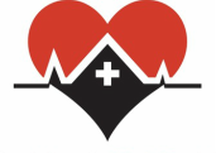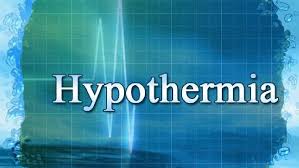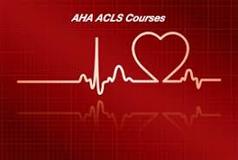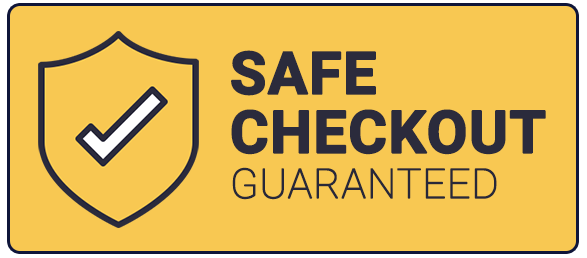COLD WEATHER PRECAUTIONSWinter is here and even though we live in Texas, we still experience frigid temperatures which can be hazardous to anyone's health. Hypothermia, or abnormally low body temperature, is a dangerous condition that can occur when a person is exposed to extremely cold temperatures.
What is Hypothermia? Hypothermia is caused by continuous and lengthy exposure to very cold temperatures. When exposed to cold temperatures, the human body begins to lose heat faster than it’s produced. This exposure will eventually use up your body’s stored energy, which leads to lower body temperature. Body temperature that is too low affects the brain, making the victim unable to think clearly or move well. This makes hypothermia especially dangerous, because a person may not know that it’s happening and won’t be able to do anything about it. While hypothermia is most likely at very cold temperatures, it can occur even at cool temperatures (above 40°F) if a person becomes chilled from rain, sweat, or submersion in cold water. Some warning signs of hypothermia include shivering, exhaustion, confusion, fumbling hands, memory loss, slurred speech, and drowsiness. Taking a first aid and emergency resuscitation (CPR) course is a good way to prepare for cold-weather health problems. Taking preventive action is your best defense against having to deal with extreme cold-weather conditions. By preparing your home and car in advance for winter emergencies, and by observing safety precautions during times of extremely cold weather, you can reduce the risk of weather-related health problems. Happy Holidays and take care and be safe this Holiday Season. http://www.nkytribune.com/2017/12/winter-is-here-and-cold-weather-can-be-deadly-the-cdc-offers-helpful-advice-to-stay-warm-and-safe/
Comments
Help-A-Heart will begin offering the American Heart Association Advanced Care Life Support (ACLS) initial and renewal class beginning in January, 2018. Pre-registration will be required.
The ACLS class will be an instructor-led classroom advanced course that emphasizes the importance of team communication, various methods of advanced systems of care and immediate post-cardiac-arrest care. The ACLS class will also cover airway management and related pharmacology. The skills will be taught in small group sessions and group learning and testing stations will be utilized to present case based scenarios. The ACLS initial course will be a 2 day course and upon completion the student will receive a certification card valid for 2 years. The ACLS provider manual is required and may be purchased for an additional fee. The ACLS renewal course will be a 6 hour course and the student will be required to have a current ACLS Card from the American Heart Association. Upon completion the student will receive a certification card valid for 2 years. Both the initial and renewal class will require a written and a practical skills test. For those that choose the Heartcode ACLS online course option; the practical skills test only will be required. The ACLS classes will be kept small with no more than 6 students. Check out our January 2018 schedule for class dates and don't forget to register early for your ACLS initial or renewal class. All return students will receive a 10% discount. |
AuthorDr. Tracy A. Jones is the CEO of Help-A-Heart CPR, LLC and an American Heart Association, ASHI, and American Red Cross Master Program Trainer, Instructor, & AHA Faculty Member located in San Antonio, Texas. Archives
June 2024
Categories |
Help-A-Heart CPR, LLC | 1747 Citadell Plaza Suite 101 | San Antonio, Texas 78209 | (210) 380-5344 | [email protected]
Copyright © Help-A-Heart CPR, LLC 2024
100% Certification Acceptance
We promise your employer, school, or agency will accept the certification card we issue to you. If there is a question of acceptance or validity, simply send us an email at [email protected] with full details. We will reach out to the individual/entity and provide accreditation information. If still there’s a question, we will provide you with a full refund of your class fee. It’s that simple.
We promise your employer, school, or agency will accept the certification card we issue to you. If there is a question of acceptance or validity, simply send us an email at [email protected] with full details. We will reach out to the individual/entity and provide accreditation information. If still there’s a question, we will provide you with a full refund of your class fee. It’s that simple.
|
Communities Served
ALABAMA: Birmingham
ARKANSAS: Fayetteville, Hot Springs, Jonesboro, Little Rock NEW MEXICO: Albuquerque TENNESSEE: Knoxville TEXAS: Amarillo, Arlington, Austin, Bandera, Bastrop, Boerne, Brownsville, Comfort, Converse, Corpus Christi, Dallas/Ft. Worth, Del Rio, Dripping Springs, El Paso, Floresville, Fredericksburg, Georgetown, Harlingen, Houston, Junction, Katy, Kerrville, Kingsville, Kingwood, Laredo, Lubbock, Lufkin, McAllen, Midland, New Braunfels, Odessa, Pleasanton, Round Rock, San Angelo, San Marcos, Schertz, Seguin, Taylor, Temple, Texarkana, Tyler, Universal City, Victoria, Waco, The Woodlands |
Why Choose Help-A-Heart CPR?
1. Flexible Scheduling
2. On and Off Location Training Available 3. Casual, Fun Atmosphere 4. Best Price Guarantee 5. All Instructors are AHA and/or ARC certified 6. 5 Star Google Reviews 7. Blended Learning (Online & Skills Check) Available 8. Meets OSHA & College CPR Requirements 9. Get Certified Within 3-4 Hours 10.Certification Is Good For Two Years 11. Official AHA/ARC/ASHI Training Site 12. High Quality Safety Training! |









